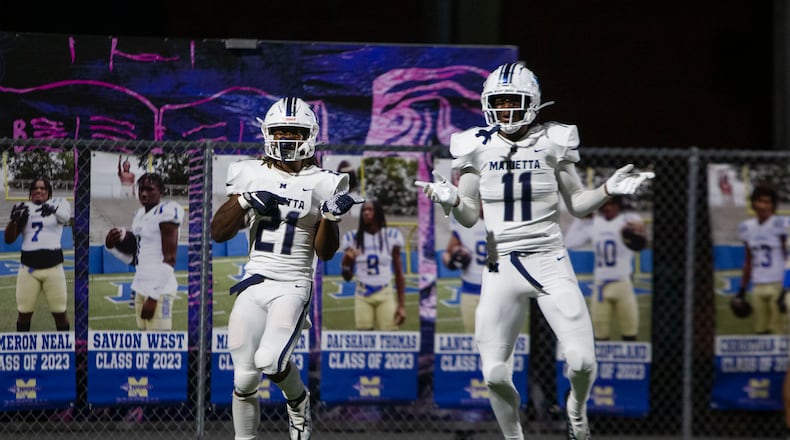GHSA executive director Robin Hines will discuss name, image and likeness (NIL) deals for high school athletes at next Monday’s executive committee meeting in Macon, but the GHSA won’t propose changing its bylaws until fall at the earliest, he said Monday.
With NIL deals now legal in college sports, 26 state high school associations have moved in the past two years to allow their athletes to benefit. Hines said the GHSA needs more time to craft a plan and educate its member schools, athletes and parents on what a rule change would mean.
Specifically, Hines wants to reassure administrators and coaches that schools or businesses won’t be able to use NIL deals to recruit athletes or to jeopardize their amateur status.
“When I spoke about it the first time [to the board of trustees in January], I received a lot of feedback from coaches and member schools who were under the impression you’re paying someone to play high school sports,” Hines said. ‘’That’s not the case. From most states that have adopted NIL rules, they keep amateur rules in place. They recognize that individuals own their own name, image and likeness and can endorse products on their own as long as they don’t include the intellectual property of the school or the state association.’’
As a model, Hines cited new rules that New Jersey passed in December. They allow high school athletes to endorse products and promote activities but not during team or school activities or while wearing apparel that identifies the school. They don’t allow athletes to endorse alcohol or tobacco products, betting establishments or lotteries.
“Being a capitalist myself, I don’t want to take away opportunities from others,’’ Hines said, “but when we’re ready to do something like that, we want to make sure guardrails are in place.’’
The current GHSA bylaw that makes NIL deals potentially illegal is 1.92 (c), which bans ‘’capitalizing on athletic fame by receiving money or gifts with monetary value except college scholarships.” An exception lets athletes give lessons or coach at clinics for pay.
Hines indicated that any GHSA proposal would not allow for collectives, as they’re known in college sports, to gather and disperse money to athletes. He said he would not support changing the GHSA rules regarding undue influence and recruiting to accommodate NIL.
“Let’s say a bunch of kids transferred into this one school, and everybody is doing NIL deals through the same company,’' Hines said. “That’s undue influence by a booster.’'
If Georgia moves ahead with allowing NIL deals, it could become only the third Southern state to do so. Tennessee and Louisiana allow NIL deals. North Carolina and Arkansas are considering it.
About the Author

